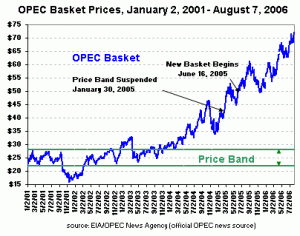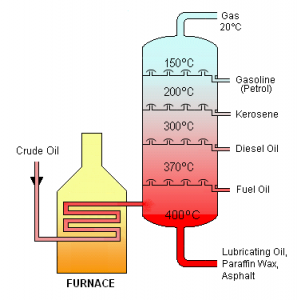Whose Side Are They ON?
Posted in Australia, Globalism, Other Current Affairs, United Nations, United States on October 2nd, 2009 by Jacob02 October, 2009
Last week we saw one of the most frightening exposition of the end of our individual (respective) national sovereignties as we have been accustom to know it. Last week was the watershed in what our politicians often refer to as “the journey” towards global governance. Call me “scare monger” or “conspiracy theorist” if you wish but I am here neither to scare you nor to advocate a conspiracy theory, I merely seek to highlight certain facts that are unfolding right in front of our eyes and ears and propose their significance, as I see it.
But first let me explain, global governance is not the same as global government. Global government refers to the establishment of one world-wide government, presumably under the auspices of the United Nations (or a similar organisation yet to be established), that would govern the whole world as if it was one single country. Although there are some who aspire to it, world government is not going to happen, not without a lot of bloodshed anyway.
On the other hand global governance is the action of governing under common global set of rules. Instead of blue helmets “policemen” and Black Hawk helicopters with blue UN emblem enforcing the rules of a global tyrant, under global governance, our own, friendly (or not), policemen and women will continue enforce the laws of the land, except that increasingly the laws of the land will be the laws of the globe and will come from a global governance bodies such as the UN and its agencies, proposed and drafted by faceless UN bureaucrats and rubberstamped largely by Non-Aligned Movement’s countries who hold the majority voting power in the UN.
Those of us who live under democracy will still have democracy of sort, we shall continue to vote for our respective national democratic institutions except that those institutions will be subservient to the global governance body. In other words our national governments of the future, in time, will have as much powers as the current federal powers of your local municipal council, the powers given to it by Agenda 21, more about Agenda 21 later.
Within a week, the week ended on 28September, 2009, we saw the United Nations Framework Convention On Climate Change in New-York (Sept 22), the United Nations Security Council Meeting (25 September,2009, chaired by president Obama, the general debate of the opening of the 64th session of the General Assembly of the United Nation in New-York (on 23-28 September,2009) and the Pittsburgh G20 Partnership Meeting (on 24-28 September, 2009). Whilst none of these events, in themselves, are anything new, apart from a lot of symbolism, it was the first time that leaders of the western democracies not only spoke in such unison on all raised issues BUT the all push the “Global” part above the interest of their own countries.
Our so-called leaders went to New-York and Pittsburgh to represent us, one would assume, but instead they ended up pushing their own global governance agenda through climate change, G20 or straight out UN speak, here are some example:
Barack Obama in a speech to General Assembly, highlights provided:
We have sought — in word and deed — a new era of engagement with the world. And now is the time for all of us to take our share of responsibility for a global response to global challenges.
He later said:
Today, let me put forward four pillars that I believe are fundamental to the future that we want for our children: non-proliferation and disarmament; the promotion of peace and security; the preservation of our planet; and a global economy that advances opportunity for all people.
Go and tell the brainless idiot Marxists anti-globalisation protestors in Pittsburgh that their Messiah and their activists professors are the champion of globalisation, but hey why lets some pesky fact spoil a good anti capitalists demonstration, beside, who said that riots need have a good reason?
And our illustrious Prime Minister Kevin Rudd aka Kevin747 was at his besting terms of laying grounds for his next job, he said to the very same forum:
And it is on the current challenges facing the global order that I wish to speak to this 64th General Assembly today – the global financial crisis, the unfinished business of the Doha Round, the unfolding crisis of the planet itself, the unresolved question of nuclear weapons 20 years after the end of the Cold War – and of the future of global governance itself.
Dear Kevin, he does not mince his words, does he? He continued:
And a wake-up call that our system of global governance today is in radical need of reform.
You see, to Mr. Rudd, global governance is already in here, all it needs is a radical reform, is that the same person who had told the Australian voters the he, Kevin 07, has plans for Australia? I do not recall any mention of making Australia governed from New-York.
Indeed, in certain aspect global governance is already with us, it has been here for some thirty years, just look at all conventions, declarations, charters, protocol and other euphemisms for RULES, coming down from the UN and ratified by our respective governments under our noses.
Whilst you and I been busy labouring to put roofs over our respective families, and food on our tables, the people who we elected and TRUSTED to protect our interests we busy scheming amongst themselves to bring us a global governance by stealth.
Take a look at some examples, The Lima Declaration of 1975, states, inter alia:
[Solemnly declare] their resolve to ensure the speedy and effective implementation of the principles of industrialisation laid down in the International Development Strategy for the 197Os which is being adapted to the Programme of Action on the Establishment of a New International Economic Order; [para 25]
And
That countries, particularly developed countries, should undertake an objective and critical examination of their present policies and make appropriate changes in such policies so as to facilitate the expansion and diversification of imports from developing countries and thereby make possible international economic relations on a rational, just and equitable basis; [para 27]
In other words, we “particularly the developed countries”, must hand our production to under-developed countries. Why? Because we, the developed country are evil and must pay for our sins – nothing about the billions of aid money that was squandered by corrupt leaders, nothing, no one talks about it because they are VICTIMS.
Then we have The Rio Declaration which is part of Agenda 21, documents that, irrespective of our sovereign laws, mandates local government and NON-GOVERNMENTAL organisations (NGO’s) an official status not only in relation to environmental legislation but also, the use of the environment as an excuse for all left wing doctrines – indeed a masterpiece of left wing activism, here are some examples (from the Rio declaration):
Principle 20
Women have a vital role in environmental management and development. Their full participation is therefore essential to achieve sustainable development.
Principle 21
The creativity, ideals and courage of the youth of the world should be mobilized to forge a global partnership in order to achieve sustainable development and ensure a better future for all.
Principle 22
Indigenous people and their communities and other local communities have a vital role in environmental management and development because of their knowledge and traditional practices. States should recognize and duly support their identity, culture and interests and enable their effective participation in the achievement of sustainable development.
Principle 23
The environment and natural resources of people under oppression, domination and occupation shall be protected.
Principle 24
Warfare is inherently destructive of sustainable development. States shall therefore respect international law providing protection for the environment in times of armed conflict and cooperate in its further development, as necessary.
Principle 25
Peace, development and environmental protection are interdependent and indivisible.
[Highlights provided]
And we had thought that looking after the environment means to ensure clean air, clean water and rain forests. Oh no! Agenda 21 makes it clear that just about any left wing activist can become a police officer.
When your local council require an environmental impact study before it approve your car port, say Agenda 21, when you council declare you town Nuclear Free Zone, say Agenda 21, when your council put up signes calling for the protection of the Tasmanian rain forest, say Agenda 21 – in fact when you council involves itself with issues outside its boundaries chances are that it is Agenda 21.
Charity organisations such as Oxfam or World Vision, supposedly established in order to assist the needy in poor countries (but not in their own for some reason) are getting vocally involved in issues such as global warming or join in condemning Israel’s “disproportionate” use of force, say Agenda 21 – You see my friends, the misery industry, just as the watermelon environmentalism, green on the outside and red on the inside.
The way it works is that the UN organises a convention on the issue, the UN bureaucrats, most come from under-developed countries, who prepare the final outcome and name it as a convention, protocol, declaration, agenda or whatever, it automatically passed by two third majority of the so-called non-aligned bloc with 113 votes of which about Half (56) are also members of the Organisation Of The Islamic Conference (IOC) and now you have it a “UN resolution” that your government rash to ratify as a good global citizen – It is for your own good, even the UN said so ….. hmmm hmmm hmmm.
I am sick and tired hearing politicians using “other countries” excuse as if the monopoly on wisdom lay in other countries – I like it here as it is, thank you very much but when I see politicians from all over the world using the same speak about global governance I get frightened.
whose side are they on?

